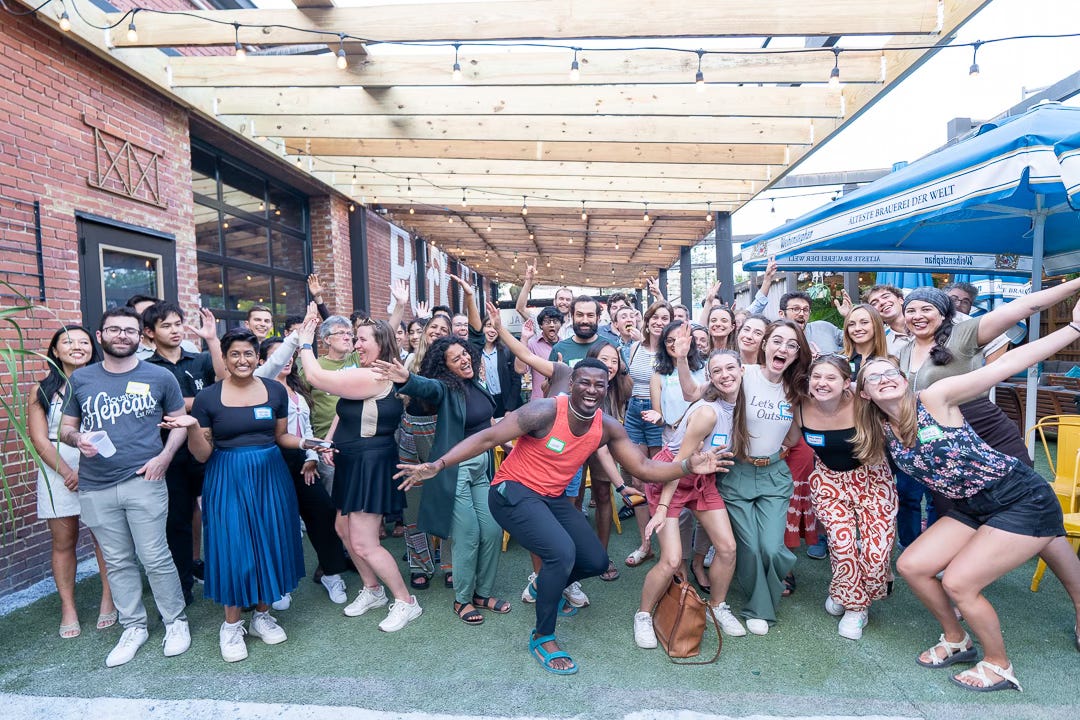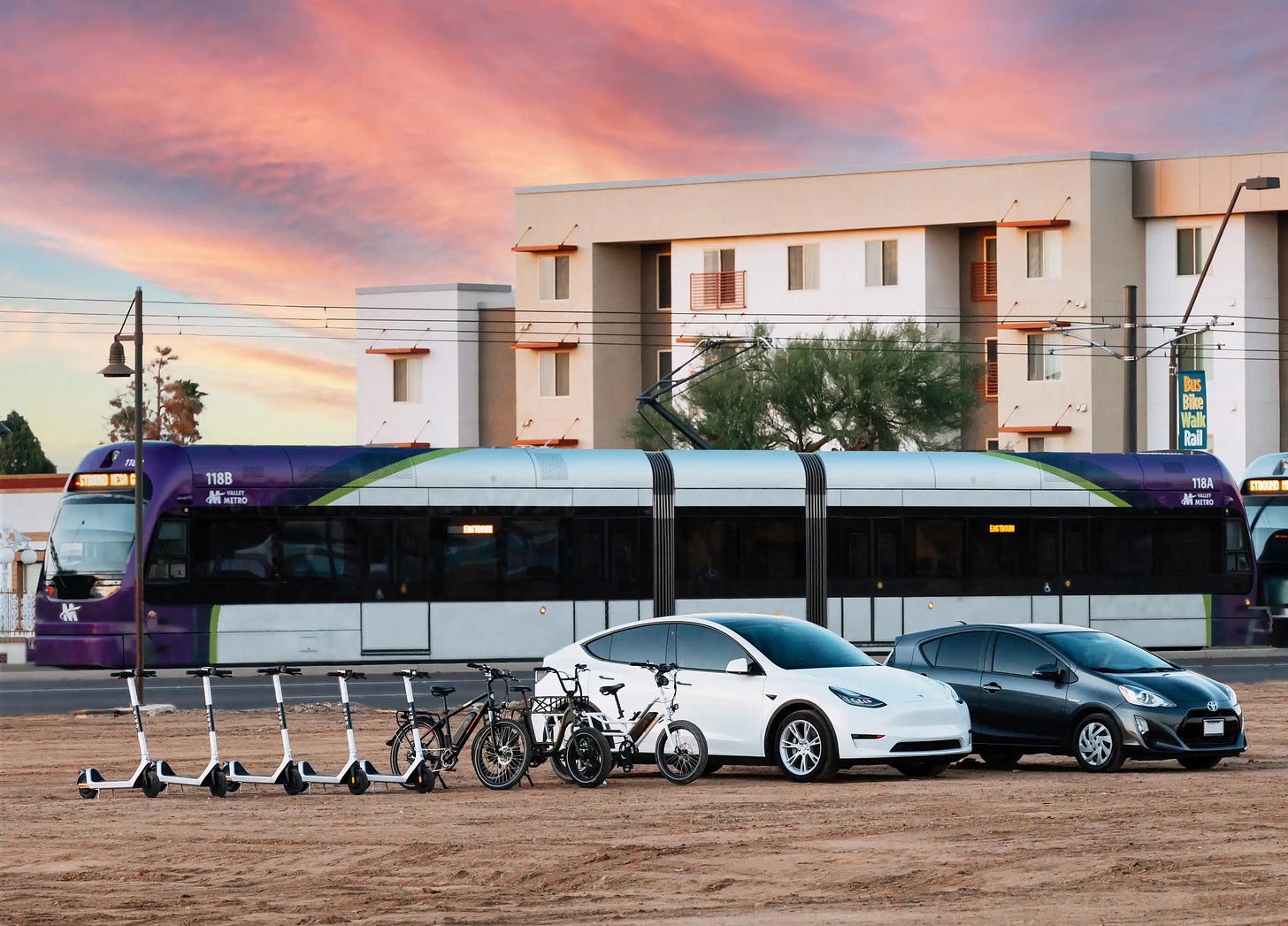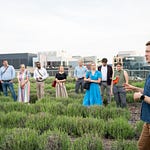A note of hope for our solarpunks!
Amidst a new political administration, solarpunk ideals might seem at odds with prevailing policy priorities. Yet, they offer a hopeful lens for change at the grassroots and state levels, where bipartisan support for renewable energy often exists.
Community-led initiatives in clean energy, green urban planning, and decentralized power systems can thrive in states and municipalities focused on economic benefits like job creation and energy independence. The solarpunk ethos—optimism, resilience, and innovation—transcends political divides, inspiring collaboration on projects that reduce costs, empower communities, and ensure a healthier future, demonstrating that progress towards sustainability and a circular economy can emerge even in challenging political climates.
King Electric & Lavala Team Up to Launch Free Bike Photography Studio 🚲
#FutureReadyTransit, #CircularEconomy
Hey Solarpunks!
I’ve partnered with King Electric to bring you a Free Bike Photography Studio to make your e-bike upgrade easier and more fun. Upgrading to an e-bike is a big step, but sometimes the hardest part isn’t choosing a new bike—it’s parting ways with your current one. That’s where King Electric and I come in.
Here’s the scoop:
When you purchase an e-bike from King Electric, we’ll take professional photos of your current bike—for free! These high-quality shots are perfect for online marketplaces like Facebook Marketplace or Craigslist, helping your bike stand out and sell faster.
This initiative isn’t just about convenience—it’s about creating a more sustainable future. By helping your old bike find a new home, we’re keeping resources in circulation and reducing waste. This collaboration is all about embracing a circular economy and fostering community-driven solutions—hallmarks of the solarpunk ethos.
Click the button below for more details, neighbors :)
What about DC’s home rule?
#communityBasedGovernance
Congress granted home rule for Washinton, D.C. in 1973, and less than two years later, the first mayor and DC council were elected and took office. Home rule did not take away Congress’s ability to intervene in DC affairs. In fact, Congress has greatly shaped DC during home rule by instituting charter schools, blocking a major revision to the District’s criminal code, among other major legislative actions.
As the 51st reported:
Mayor Muriel Bowser is doing her best to steer every conversation toward topics she thinks can be points of agreement between the city and its new GOP overlords. Speaking earlier this week, Bowser mentioned two key issues: getting federal workers back into the office on a more full time basis, and redeveloping underutilized federal parks and buildings. (The latter point speaks to President-elect Donald Trump’s pledge to beautify D.C.)
Bowser also said she is pushing to open lines of communication with new congressional Republicans, some of whom may have a dismal view of the city they will temporarily reside in and hold extraordinary power over. “We actually have to tell them about ourselves. We tell them we’re a city, we take care of ourselves, we raise and spend our money. We tell them who we are, and this is what you can do [to help us]. And this is the conversation we'll have very soon,” she said.
A Visionary Take on solarpunk Living: Spotlight on Culdesac Tempe.
#CommunityBasedGovernance, FutureReadyTransit, #CitcularEconomy, #GreenSpaces
Imagine a world where car-clogged streets give way to bustling plazas, bicycles replace SUVs, and sustainability isn’t just a dream but a lived experience. Enter Culdesac Tempe, a car-free neighborhood in Arizona redefining how we think about urban living.
At its heart, Culdesac embodies the principles of solarpunk: vibrant community spaces, sustainable design, and a future-ready approach to transit. Designed from the ground up as a walkable community, Culdesac offers lush green spaces, efficient public transit connections, and an innovative twist on housing that prioritizes people over vehicles.
Here’s why DMV readers should take note:
Community-Driven Design: Culdesac is built around shared spaces, including local businesses and parks. It’s proof that prioritizing pedestrians fosters closer-knit, more connected communities.
Future-Ready Transit: Residents rely on public transit, bicycles, and e-scooters instead of private cars. With micro-mobility booming across the DMV, imagine the potential if parts of our cities took a Culdesac-like approach.
Sustainability in Action: The neighborhood’s design integrates solar power, energy-efficient buildings, and abundant greenery. It embodies the transition to a circular economy by embracing local businesses and minimizing resource waste.
As DC, Maryland, and Virginia navigate urban planning challenges, Culdesac’s car-free model offers a blueprint for what’s possible. A DMV adaptation could weave in hyper-local elements like community gardens or even partnerships with programs like The Well at Oxon Run to grow food right where we live.
Culdesac isn’t just a place to live; it’s a statement about the future we want to create. Could the DMV follow suit? The momentum is there—let’s make it happen.














Share this post